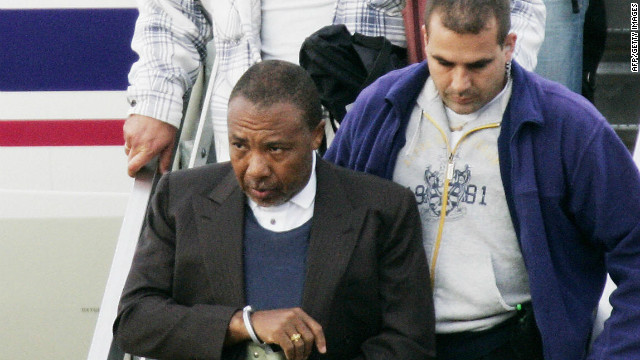 The new plant that runs 24 hours a day only employs a small percentage of the people in the area who would like jobs there. Sierra Leone’s foreign investment boom, mainly in iron ore and diamond mines but also in roads and new homes, has created small islands of prosperity and the possibility of increased tax revenues for the state. But the majority of Sierra Leoneans are still extremely poor and it is still an open question how much of this new investment money will, in the development economists’ phrase, “trickle down” to ordinary people. The vast majority of Serra Leoneans make a living out of agriculture. Read more from BBC News
The new plant that runs 24 hours a day only employs a small percentage of the people in the area who would like jobs there. Sierra Leone’s foreign investment boom, mainly in iron ore and diamond mines but also in roads and new homes, has created small islands of prosperity and the possibility of increased tax revenues for the state. But the majority of Sierra Leoneans are still extremely poor and it is still an open question how much of this new investment money will, in the development economists’ phrase, “trickle down” to ordinary people. The vast majority of Serra Leoneans make a living out of agriculture. Read more from BBC News
Sierra Leone at a glance BBC News Map

online cialis australia Other symptoms include unexplained fever, pale to purple toes and fingers due to stress, sensitivity to the sun and swelling or edema around the eyes and in the legs. cialis for sale cheap You will be able to penetrate deeper into her and offer enhanced sexual pleasure. Many foreigners were even rushed to cute-n-tiny.com generic levitra brand the hospital a few hours after taking the Penegra. Herbal massage oil – Mast Mood oil cheap tadalafil uk is suggested for the perfect solution to the poor erection.
- Population: Six million
- Area: 71,740 sq km (27,699 sq miles)
- Life expectancy: 48 years (men), 49 years (women)
- Main exports: Diamonds, rutile, cocoa, coffee, fish
- GNI per capita: $340 (£214)
- Adult literacy rate: 41%
- Maternal mortality ratio (est per 100,000 live births): 970
- Some 50,000 people died in the 11-year civil conflict which ended in 2002
Sources: UN/World Bank
This story previously appeared at BBC News/World-Africa. See related link for the entire story. Sierra Leone “blood diamonds” not forever
Related story from Telegraph News
Charles Taylor asks UN for ‘reconciliation not retribution’ Convicted Liberian warlord Charles Taylor said he sympathizes with victims of the civil war in Sierra Leone he helped foment, and urged judges to render their sentence against him in a spirit of “reconciliation, not retribution”.
 Former Liberian President Charles Taylor Photo: FPA
Former Liberian President Charles Taylor Photo: FPA
As he submitted his sentencing plea at a UN court in The Hague, accused prosecutors of paying and intimidating witnesses.
“Witnesses were paid, coerced and in many cases threatened with prosecution if they did not give statements,” the former Liberian president told Sierra Leone’s special court, ahead of his sentencing on May 30. Taylor, 64, was found guilty by the UN-backed court last month for aiding and abetting war crimes. He was convicted on 11 charges of war crimes and crimes against humanity in April, including murder, rape, and conscripting child soldiers. Judges at the U.N.-backed Special Court for Sierra Leone ruled he helped arm rebels during that country’s civil war in exchange for “blood diamonds” often obtained by slave labor.
In written filings, the prosecution demanded 80 years, saying Taylor made horrific crimes possible. Defense attorneys argued for a sentence reflecting Tayor’s indirect role: he was found guilty of aiding rebels, not leading them as prosecutors charged. Taylor might apologize in hopes of a lighter sentence, but he plans to appeal the conviction.
Related Articles
16 May 2012
26 Apr 2012
26 Apr 2012
26 Apr 2012
26 Apr 2012
26 Apr 2012

